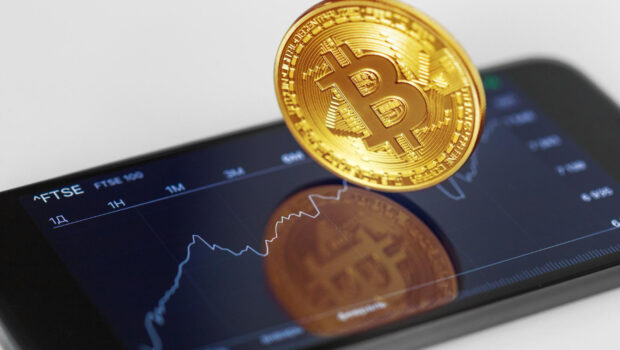How is Bitcoin Doing in the US
The United States is one of the most important markets for Bitcoin. Despite its relatively late adoption of cryptocurrency, the country has been a key driver of Bitcoin’s growth.
One of the main reasons for Bitcoin’s popularity in the US is its use as an investment vehicle. Many Americans see Bitcoin as a way to diversify their portfolio and protect their wealth from inflation.
Another reason for Bitcoin’s popularity in the US is its use as a payment method. Over the years, more and more businesses have started accepting Bitcoin as a form of payment. This has made it easier for people to use Bitcoin Prime in their everyday lives.
Despite its growing popularity, there are still some challenges that need to be addressed in order for Bitcoin to reach its full potential in the US. One of the biggest challenges is regulatory uncertainty. The US government has yet to provide clear guidelines on how it intends to treat cryptocurrency. This lack of clarity has made it difficult for businesses to operate and has limited Bitcoin’s adoption.
Another challenge that needs to be addressed is scalability. Bitcoin’s network is currently unable to handle large amounts of traffic. This scalability problem needs to be solved in order for Bitcoin to be used more widely as a payment method.
Despite these challenges, there is still a lot of interest in Bitcoin in the US. With its growing popularity and increasing use cases, it is likely that Bitcoin will continue to grow in the United States.
Role of Bitcoin in Hawaii
The use of Bitcoin in Hawaii is subject to regulation by the US state of Hawaii. The Hawaii Division of Financial Institutions (DFI) has issued guidance on the use of digital currencies, stating that “virtual currency businesses” will be required to obtain a money transmitter license from the DFI. In order to obtain a money transmitter license, businesses must demonstrate compliance with state and federal laws, including anti-money laundering (AML) regulations.
Bitcoin businesses in Hawaii are also required to comply with applicable consumer protection laws, such as those prohibiting unfair or deceptive practices.
Hawaii’s approach to regulating Bitcoin businesses is similar to that of other US states. However, given the relatively small size of the Hawaiian economy, it is unclear how many Bitcoin businesses will ultimately be licensed by the DFI.
The use of Bitcoin in Hawaii is subject to regulation by the US state of Hawaii. The Hawaii Division of Financial Institutions (DFI) has issued guidance on the use of digital currencies, stating that “virtual currency businesses” will be required to obtain a money transmitter license from the DFI. In order to obtain a money transmitter license, businesses must demonstrate compliance with state and federal laws, including anti-money laundering (AML) regulations.
Bitcoin businesses in Hawaii are also required to comply with applicable consumer protection laws, such as those prohibiting unfair or deceptive practices.
Hawaii’s approach to regulating Bitcoin businesses is similar to that of other US states.
Bitcoin’s Repute in Hawaii is Contrasted by its Popularity in the United States
Hawaii’s bitcoins may be facing an uphill battle. The state’s regulators have proposed a series of rules that could make it difficult for businesses to accept the digital currency.
The Hawaii Division of Financial Institutions has proposed regulations that would require businesses to obtain a money transmitter license in order to accept bitcoins. The cost of the license could range from $5,000 to $100,000, depending on the size of the business.
The proposed regulations would also require businesses to maintain records of all bitcoin transactions and to implement anti-money laundering measures.
The regulations are currently in a comment period, and will be voted on by the Hawaii State Legislature later this year.
The proposed regulations come at a time when bitcoins are gaining popularity in the United States. In recent months, a number of businesses have started accepting bitcoins, including online retailers such as Overstock.com and TigerDirect.com.
Bitcoins are also being used more and more for online donations. The Republican Party of Florida recently began accepting bitcoin donations, and the University of Nicosia in Cyprus announced that it would start accepting bitcoin payments for tuition fees.
The proposed regulations in Hawaii could put a damper on the growing use of bitcoins in the United States. If the regulations are enacted, businesses in Hawaii will likely be reluctant to accept bitcoins due to the cost and hassle of obtaining a money transmitter license.
And if businesses in Hawaii stop accepting bitcoins, it could have a ripple effect across the United States. After all, why would businesses in other states accept bitcoins if they can’t be used in Hawaii?
The proposed regulations in Hawaii are just the latest example of how governments are struggling to deal with bitcoins. As the use of bitcoins grows, more and more governments are facing the question of how to regulate the digital currency.
So far, most governments have taken a hands-off approach to regulation, but that could change as bitcoins become more popular. For now, it’s still unclear how Hawaii’s proposed regulations will affect the future of bitcoin in the United States.
Cover Image by Freepik

















